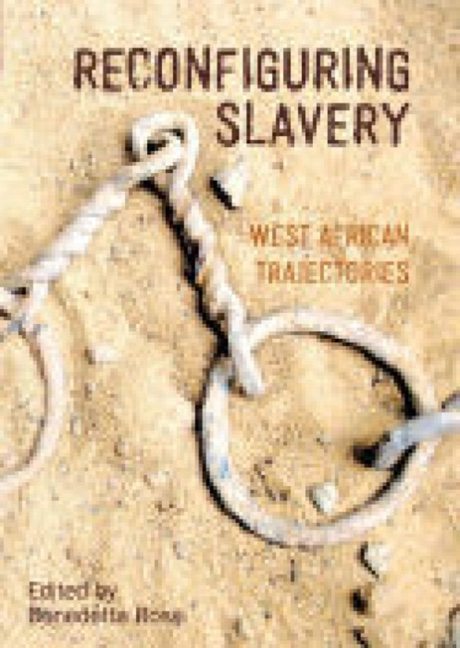Book contents
- Frontmatter
- Content
- List of Figures
- Notes on Contributors
- Preface
- A Note on Language
- Preface to the Second Edition
- 1 Introduction: Rethinking Slavery in West Africa
- 2 Slave Descent and Social Status in Sahara and Sudan
- 3 African American Psychologists, the Atlantic Slave Trade and Ghana: A History of the Present
- 4 After Abolition: Metaphors of Slavery in the Political History of the Gambia
- 5 Islamic Patronage and Republican Emancipation: The Slaves of the Almaami in the Senegal River Valley
- 6 Curse and Blessing: On Post-slavery Modes of Perception and Agency in Benin
- 7 Contemporary Trajectories of Slavery in Haalpulaar Society (Mauritania)
- 8 Slavery and Politics: Stigma, Decentralisation and Political Representation in Niger and Benin
- 9 Slavery and Migration: Social and Physical Mobility in Ader (Niger)
- 10 Discourses on Slavery: Reflections on Forty Years of Research
- Glossary of Foreign Words
- Index
2 - Slave Descent and Social Status in Sahara and Sudan
- Frontmatter
- Content
- List of Figures
- Notes on Contributors
- Preface
- A Note on Language
- Preface to the Second Edition
- 1 Introduction: Rethinking Slavery in West Africa
- 2 Slave Descent and Social Status in Sahara and Sudan
- 3 African American Psychologists, the Atlantic Slave Trade and Ghana: A History of the Present
- 4 After Abolition: Metaphors of Slavery in the Political History of the Gambia
- 5 Islamic Patronage and Republican Emancipation: The Slaves of the Almaami in the Senegal River Valley
- 6 Curse and Blessing: On Post-slavery Modes of Perception and Agency in Benin
- 7 Contemporary Trajectories of Slavery in Haalpulaar Society (Mauritania)
- 8 Slavery and Politics: Stigma, Decentralisation and Political Representation in Niger and Benin
- 9 Slavery and Migration: Social and Physical Mobility in Ader (Niger)
- 10 Discourses on Slavery: Reflections on Forty Years of Research
- Glossary of Foreign Words
- Index
Summary
Over a century after European powers took what seemed to be decisive action against slavery and the slave trade, there are probably a couple of million people in West Africa who are referred to in their native languages as slaves. These people all descend from people who were slaves, who were captured or perhaps enslaved as a penalty for crime or a parent's debts. They experienced the shame and humiliation of enslavement and, thus, many of their descendants are stigmatised as being different. The terms vary from place to place. The bidan nobility of Mauritania often refer to all people of African descent as abd, which means slave in Arabic. Some use a local term such as jaam, which means the same thing in Wolof. Others use terms such as the Mande woloso, the Songhay horso and the Poular rimaayBe, which refer to secondgeneration slaves ‘born in the house’. The actual obligations of such persons vary nowadays, but generally are limited to symbolic payments or token acts. Still, one can go into most villages in West Africa, and all villages among the more hierarchical societies, ask where the ‘slaves’ are and be directed to certain hamlets or special quarters of the village. At the same time it is considered bad manners in many of those villages to confront persons of slave origin with their status. In spite of this formal discreetness, status regulates social relationships, particularly marriage, and hierarchy is often indicated by kinship terminology, the descendant of the master being addressed as father and the descendant of former slaves being spoken to as if they were children. This chapter seeks to assess the transformation of slave status in West Africa since the late nineteenth century. It does not deal with all societies.
Many people in West Africa lived in decentralised societies, which got involved in slaving but never became large-scale slave-users. In such societies integration tended to be rapid and slave origins relatively unimportant, though sometimes memories of the slave trade remain vivid. Most of the people of West Africa, however, lived in highly structured societies, in many of which slaves were a majority of the population and the source of most labour in pre-colonial times.
- Type
- Chapter
- Information
- Reconfiguring SlaveryWest African Trajectories, pp. 26 - 44Publisher: Liverpool University PressPrint publication year: 2009



